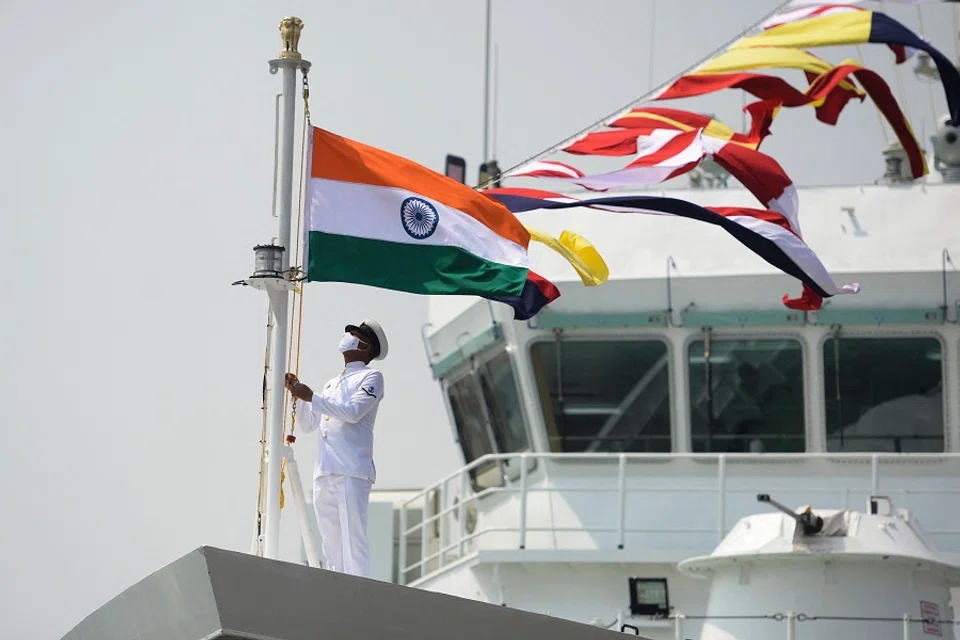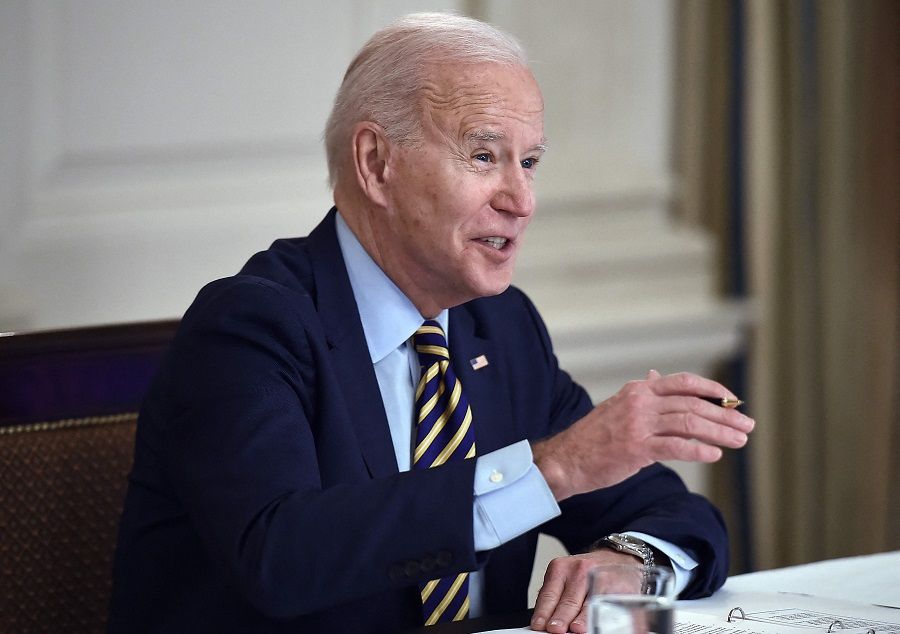Indian academic: The Quad gains momentum and China feels threatened

Since its inception in 2007, the Quadrilateral Security Dialogue, commonly called the 'Quad', has been faced with speculation over its very existence. The debate being: How feasible is the Quad? Will the Quad survive?
What has spurred the debate is the ineffectiveness of the short-lived grouping which lay dormant for over a decade before being revived in 2017 on the sidelines of the East Asia Summit in Manila. Since then the grouping has upgraded itself from formal official-level exchanges to that of ministerial-level talks in 2019 with three meetings held until February 2021, and finally, a leader-level virtual summit in 2021. These changes illustrate the slow but steady growth of the Quad.
The Quad gathers momentum
The historic turning point came on 12 March 2021 when the Quad paved a new path with the holding of the first Quad summit conducted virtually. The meeting was attended by Australian Prime Minister Scott Morrison, Indian Prime Minister Narendra Modi, Japanese Prime Minister Yoshihide Suga, and US President Joe Biden. Each of these leaders' views on the Quad have fortified the Quad construct, forming the basis on which the Quad is anchored. Biden stated that the Quad is "dedicated to practical solutions and concrete results", Morrison prophesied that the Indo-Pacific will "shape the destiny of the world in the 21st Century", Modi emphasised that the Quad "has come of age and will remain an important pillar of stability", and Suga said that he felt "emotional" about the summit.
First, unlike the past, the four countries are on the same page in terms of their Indo-Pacific vision. Second, democratic values are a binding factor for the Quad, in which there is no room for coercion.

So far, the visions of an "open and free Indo-Pacific", and that of "an inclusive Indo-Pacific", seem multifarious and disparate, but countries have bridged the gap. This can be seen from the "Quad Leaders' Joint Statement: 'Spirit of the Quad'" issued by Australia, India, Japan, and the US. Reaffirming their commitment towards the Quad, the leaders' statement categorically posits:
"We bring diverse perspectives and are united in a shared vision for the free and open Indo-Pacific. We strive for a region that is free, open, inclusive, healthy, anchored by democratic values, and unconstrained by coercion."
The Joint statement highlights four key aspects that define the Quad: First, unlike the past, the four countries are on the same page in terms of their Indo-Pacific vision. Second, democratic values are a binding factor for the Quad, in which there is no room for coercion. Third, the bottom line is a "free, open rules-based order, rooted in international law". And fourth, the vision is embedded in ASEAN centrality and the ASEAN Outlook on the Indo-Pacific.
The growth of the Quad can also be seen in its continued diversification in recent times. The movement towards Quad-Plus in 2020 with the participation of New Zealand, South Korea and Vietnam in Covid-19-related discussions highlights the "inclusive" vision of the Quad. Besides, the Quad has also successively expanded its agenda from the initial humanitarian aid and disaster relief (HADR) activities to that of focusing on emerging issues of critical concern, such as vaccines, climate change and emerging technologies. This has led to an agreement to set up three working groups: a vaccine expert working group for safe and effective vaccine distribution; a critical and emerging technology working group to facilitate cooperation on international standards and innovative technologies, and a climate working group to strengthen climate actions globally.
In fact, it is a Chinese narrative to call the Quad "an Asian-NATO" and an outfit with a "Cold War mentality". This very practice only serves to highlight Beijing's own anxiety over the Quad.

The expansion of the Quad over time highlights two key factors: first, the Quad has a broad security vision that takes into account the interests of the Indo-Pacific region. Human security and technological cooperation rank high on the agenda. And second, Quad is more than just being China-centric in its approach.
China feels threatened by the Quad
The question is: Why is China feeling unsettled? It is well noted that the Quad in principle maintains that it is not "against any country", and likewise has never made any explicit mention of "China"; however, Beijing purports a different narrative. In fact, it is a Chinese narrative to call the Quad "an Asian-NATO" and an outfit with a "Cold War mentality". This very practice only serves to highlight Beijing's own anxiety over the Quad. This is evident in China's reactive response to the Quad Summit by calling it "selective multilateralism" and "Covid politics". More precisely, the very fact that Beijing warned against forming "exclusive cliques" highlights its own sense of alienation which does not stem from what is projected from the Quad, but China's own perception.
Besides, China's own actions have given credence to the "China threat". For one needs to note, a "free, open and rules-based" Indo-Pacific is a justified call by the Quad and this is not aimed at any one country but an all-encompassing view considering various security imperatives. However, any calculation rooted in realism cannot rule out the possibility that China's actions might destabilise regional peace and stability. In spite of Chinese concerns, it would be too simplistic to think of the Quad as just being China-centric. Also to note, the very genesis of Quad was to facilitate a response to the 2004 tsunami in Japan, while the Covid-19 pandemic has provided the organisation with another boost.
China is a security concern given the disputes in the region that directly involve Beijing, be it in the South China Sea, Taiwan, East China Sea and the Himalayan border. That is also why Beijing sees the Quad as anti-China.

Why does the Quad matter? The answer lies in building a stable and rules-based order. We are now living in a multi-polar world where no one country can rule over and be the sole security provider. Increasingly, the Indo-Pacific has become the epicentre of security concerns in both traditional and non-traditional aspects. China is a security concern given the disputes in the region that directly involve Beijing, be it in the South China Sea, Taiwan, East China Sea and the Himalayan border. That is also why Beijing sees the Quad as anti-China. Notwithstanding, China has grave issues with each of the four Quad countries, apart from ideological differences. Any trigger to these hotspots will have a debilitating effect on the region.
On the whole, the summit has dispelled some speculation and apprehension. Whether one accepts it or not, the Quad has been anchored. With "synergy" as the ultimate goal, the grouping has become proactive not just in theory but also in practical terms. With no more adieu, the Quad is looking towards the future by paving the way, as the Quad leaders articulated, for a "free, open, accessible, diverse, and thriving Indo-Pacific".
